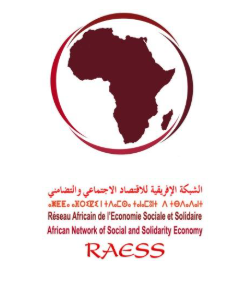
The African Network for the Social and Solidarity Economy (RAESS) welcomes this process underway. Already, six African countries have adopted such legislation: Cabo Verde (2016), Cameroon (2019), Djibouti (2019), Tunisia and Senegal (2020) and Côte d’Ivoire (2025).
Specific public policies and strategies exist in Mali (2014), Côte d’Ivoire (2025), and South Africa (2021). In some countries, such as Morocco, a process of drafting a framework law began a few years ago but has not yet been completed.
The RAESS was born in 2010 under the initiative of 25 civil society organizations from countries on the continent. It brings together 22 country networks and focal points: Algeria, Benin, Burkina Faso, Cameroon, Cape Verde, Comoros, Côte d’Ivoire, Democratic Republic of the Congo, Egypt, Ethiopia, Gabon, Guinea, Mauritius, Madagascar, Mali, Morocco, Niger, Senegal, Tanzania, Togo, Tunisia and Uganda.
The formal adoption by the Heads of State of Africa, at the meeting of the African Union Commission on 15 February 2025, of the Ten-Year SSE Strategy and Implementation Plan (2023-2033) is an important continental provision to support the adoption of legislation in all African countries.
As for RAESS, it participated in the process of developing the Ten-Year Strategy by participating in various preparatory consultations such as the one in Windhoek in 2022. The RAESS is recognized in the document as an SSE network, the only one.
Also, RAESS favors partnership with all African organizations wishing to consolidate the SSE in Africa.
As a member of the Intercontinental Network for the Promotion of the Social Solidarity Economy (RIPESS), RAESS has participated fully in the promotion of the SSE at the global level. Already in September 2015, during the UN General Assembly that adopted the 2015-2030 SDGs, the current President of RAESS, Madani Koumaré, then President of RENAPESS Mali, was selected as one of the 20 representatives of civil society to speak. In his speech, he exposed the importance of the SSE for inclusive development in Africa and the change of paradigms.
Similarly, through RIPESS, RAESS contributed to establishing a definition of SSE at the International Labour Conference in June 2022, which adopted the resolution on Decent Work and the Social and Solidarity Economy.
RAESS, through RENAPESS Mali, has contributed to training Mauritanian SSE organisations and accompanying them towards the creation of their network, with the support of Spanish cooperation in Mali.
The RAESS has accompanied the processes of developing the SSE strategy and law in Côte d’Ivoire.
Even more significant, and of major importance for Africa, is the adoption by the UN General Assembly of resolution 77/281 on 18 April 2023 entitled The promotion of the social and solidarity economy for sustainable development. Through its involvement in the United Nations Inter-Agency taskforce on SSE, RIPESS has played a key, if not indispensable, role in both the content and the adoption process by mobilizing countries to bring the project to the General Assembly. Senegal was part of the group concerned, led by Spain and France.
More recently, this same approach has enabled RIPESS to have SSE financing included in the Sevilla Commitment adopted at, the fourth United Nations Conference on Financing for Development (FfD4), ten years after the previous conference in Addis Ababa, where RAESS took part through RIPESS. On the occasion of an official activity during the Sevilla meeting, RIPESS organized a high-level meeting with ministers and officials of various international institutions, Madani Koumaré, President of RAESS, now also a coordinator of RIPESS, presented the proposal of RIPESS in order to establish a mechanism adapted at the country level to finance the economic units of the SSE.
If all these essential advances for the SSE have occurred, it is because we are building a global movement through RIPESS.
Moreover, it was during a meeting held in Dakar in December 2002, to prepare the 3rd major international meeting on the globalization of solidarity in November 2005 in Dakar, after those in Lima in 1997 and Quebec in 2001, that the delegates from 4 continents decided to create RIPESS. RIPESS was born in Africa!
Since 2003, driven by the prospect of the 2005 meeting, the SSE was deployed in a dozen countries, mainly in West Africa. The SSE has taken root in these countries, through the creation of national networks. In June 2005, a first strictly African forum was held in Bamako to organize itself in order to bring the African vision and perspectives to the 3rd meeting on the globalization of solidarity in November 2005. This major global meeting had more than 1200 participants, including 800 Africans, from all continents bringing together enterprises with a social purpose, mutual societies, cooperatives, associations and NGOs, development and cooperation organizations, academics, trade unions, governments, local elected officials.
The 2005 Dakar Declaration paved the way for the international promotion of the SSE through continental networks that were established in all continents.
Since then, RAESS has been leading the way of the African SSE at the global level through RIPESS. Thus, RAESS invites all African organizations, which are not already members, to join it to work together to realize the full potential of SSE in Africa and strengthen the resilience of populations to the challenges of sustainable development.
RAESS attaches particular importance to South-South cooperation, institutional partnership with States, development cooperation organizations and development finance institutions.
For all the reasons mentioned above, we strongly support the process underway in Benin, including our support for the Beninese SSE Group (GBESS), a member of RAESS, which is participating in the process.
July 11, 2025
Madani KOUMARÉ
President
RAESS


